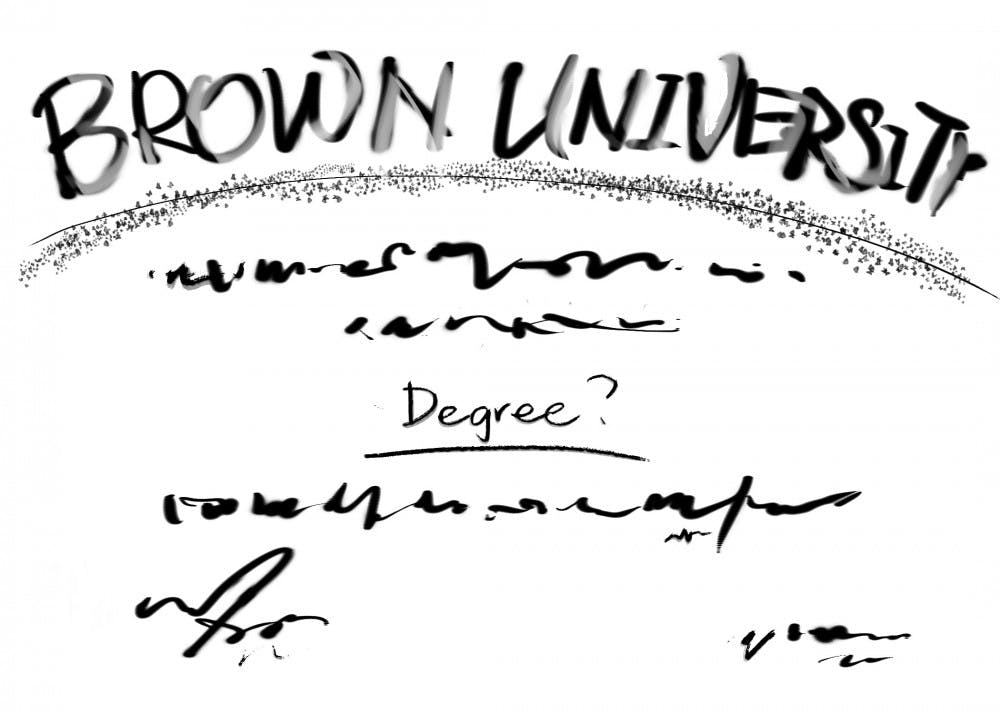After lengthy debate among students and faculty, the University has reached the final stages of adding undergraduate certificates to the college curriculum.
Following the passage of a motion during a December 2018 faculty meeting, the certificates will allow students “to explore a discrete field of knowledge organized around a set sequence and structure, although less in depth than a concentration,” wrote Besenia Rodriguez ’00, the senior associate dean of the curriculum and College Curriculum Council member, in an email to The Herald.
The earliest that any certificate will be approved is the end of this semester, said Rashid Zia ’01, dean of the college and chair of the CCC. But official University policies have already been amended to include undergraduate certificates, according to the University’s faculty rules and regulations on the Office of the Provost’s website.
Academic entities will have the ability to propose the creation of certificates, which must be distinct from existing concentrations, Zia said. These entities include groups such as the Jonathan M. Nelson Center for Entrepreneurship, the Data Science Initiative and the Institute at Brown for Environment and Society. These groups could create certificates in entrepreneurship, data fluency and sustainability, respectively, he added.
The CCC is in the process of finalizing the review guidelines , which will come from the CCC, Zia said.
To receive a certificate, students will have to take four or five predesignated courses, of which only one can be double-counted toward a concentration requirement. Students will also have to complete a capstone project, according to the faculty rules and regulations. Students can only declare certificates after committing to a concentration. In their declaration, students will have to communicate their rationale for pursuing a certificate, which will be awarded during graduation.
The certificates are also not intended to resemble minors. “We don’t want certificates to be a venue for credentialing or to get in the way of student choices about their learning,” Zia said.
Ultimately, the certificates would offer structured learning pathways that complement traditional concentrations, Zia said. “Many Brown students complete specialized work in a field other than (their) concentrations,” he added. The certificates will create a mechanism “for formally recognizing or providing structured advising for this work.” For instance, an English concentrator interested in textual analysis or natural language processing could earn a certificate in data fluency, he said.
Students can only receive one certificate from the University. “We don’t want the certificate … to become a substitute or replacement for that in-depth learning that you have in a concentration,” Zia said. “We really think that they can be complementary.”
The possibility that students will treat the certificates as a credential is a potential problem, said Aliosha Bielenberg ’20, an undergraduate representative on the CCC and a member of the Undergraduate Certificates Working Group. Education should not be about “people doing things because they want another thing on their transcript or … to help them get a job,” he said.
“You (don’t) want people … declaring a certificate with no thought put into it,” he added. “You don’t want people to just do it on a whim.”
Conversation surrounding certificates is not new. In 2011, the University considered adding language certificates, as The Herald previously reported.
In part due to the success of the Engaged Scholars Program, which was established three years ago, change is happening now Rodriguez wrote. “In allowing students to pursue community-engaged work, not in addition to, but in close conversation with their academic course of study and … in a multi-disciplinary community, (the ESP) laid a foundation for exploring a curricular option like certificates,” she wrote.
“Providing students with recognition for their learning is completely consistent with asking them to be active participants in framing their own education,” Zia said.
“This is providing scaffolding for a cool thing that already existed at Brown,” Bielenberg said. “How can your education at Brown push you to (become) a better person? The answer is to let you do what you want, but to really push you while you’re doing that.”
Correction: Due to an editing error, a previous version of this article stated that Dean of the College Rashid Zia received a PhD in 2001. In fact, Dean Zia received his undergraduate degree from the University in 2001. A previous version of the article also stated that a December 2018 faculty meeting saw the passage of a proposal regarding the certificates. In fact, it was a motion. The Herald regrets the errors.





